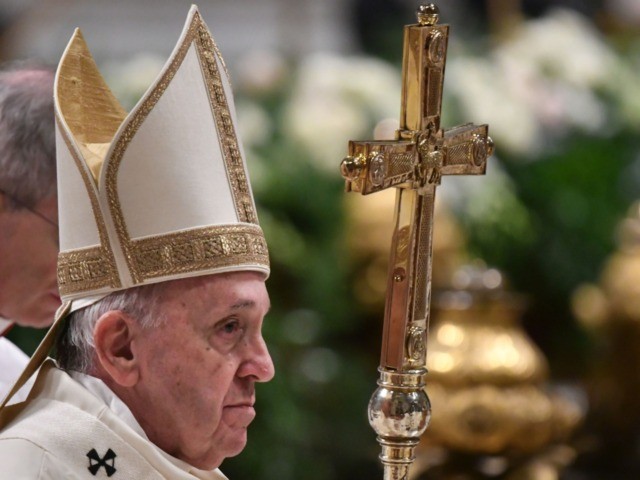ROME — Pope Francis has succeeded in enraging radical Catholics with a new letter that affirms traditional discipline regarding priestly celibacy and women’s ordination.
Following recommendations from last fall’s Vatican synod of bishops on the Amazon, which included proposals for the ordination of married men as well as female deacons, it was widely believed by progressive Catholics around the world that Francis would follow the bishops’ advice, an outcome that failed to materialize.
With the publication of his 15,000-word apostolic exhortation Querida Amazonia Wednesday, Pope Francis did just the opposite, insisting that pastoral solutions for a priest shortage in the region need to be sought within current Church practice and that the issues of female diaconate and married priests were being tabled indefinitely.
In what some are referring to as Pope Francis’ Humanae Vitae — in reference to the 1968 encyclical by Pope Paul VI in which he failed to deliver on progressives’ hopes for a lifting of the Church’s ban on contraception — Francis has alienated a portion of his biggest fan base: radical Catholics seeking sweeping changes in Catholic practice.
“We are profoundly shocked and disappointed,” said Linda Pinto, co-chair of CORPUS, a U.S.-based advocacy group pushing for the ordination of women and a lifting of the priestly celibacy rule.
“We were hopeful that this process would begin a Vatican II approach to governance and that leadership would listen to the needs of the people,” Pinto told the National Catholic Reporter (NCR).
Another group agitating for radical change, the Women’s Ordination Conference (WOC), voiced similar criticisms of the pope’s letter.
“With Querida Amazonia, the Pope is willfully turning his back on the calls of women for recognition of the sacramental ministries they offer the people of the Amazon and the global church,” read an official statement from WOC.
“This shows, yet again, that a synod without the equal voice and votes of women will never produce fruit that satisfies the urgent needs of the people of God,” the statement said.
Meanwhile, in Germany where these issues are front and center, Thomas Sternberg, president of the Central Committee of German Catholics, said he was disappointed by “the lack of courage to pursue real reforms.” Agnes Wuckelt, deputy chairwoman of the German Association of Catholic Women, called it “unbearable that the official church continues to deny women equal rights and degrades them to service providers due to biology.”
The furious reactions by first-world Catholic liberals confirmed what critics of the Amazon synod had been saying all along: that talk of a limited pastoral solution to specific problems of the Amazon region were really a trojan horse by which progressives hoped to smuggle in major changes for the universal Church.
As the synod was taking place, Vatican cardinal Walter Brandmüller declared just this: that the natives of the region were being exploited to bring about radical change in the Church, despite disingenuous protestations that the synod was only dealing with “local” pastoral solutions.
“It would be a fatal error to think that the promoters of the current Synod of Bishops were truly concerned only about the well-being of the indigenous tribes of the Amazon forests,” the cardinal stated. “They are, rather, obviously being instrumentalized in order to push an agenda which concerns the Universal Church.”
Brandmüller, president emeritus of the Pontifical Committee for Historical Sciences, had earlier said he believed that the synod had been organized in order to bring about “the abolishment of celibacy and the introduction of a female priesthood — starting first with female deacons.”
Just last month Dutch Bishop Rob Mutsaerts expressed a similar critique: that the Vatican Synod on the Amazon had been a smoke screen to sneak in the issues of married priests and female deacons.
The bishop said that the synod, held in the Vatican in October 2019, had been a “cover” to smuggle in a progressive agenda for the whole Church under the guise of addressing specific, local problems.
“The key words of the final document of the Synod were not Mother Earth and ecosystem, but viri probati, women deacons and Amazon rite,” the bishop said, in reference to the very issues that progressives are now railing about.
“Of course, the consequences will not be limited to the Amazon region,” Mutsaerts said. “Pandora’s box is open and there will be implications for the whole Church. Local bishops, beginning with the Germans, will ask for the same thing.”
Mutsaerts also said the whole push for ordaining married men in the Amazon region was a sham, since their situation is no worse than in many other parts of the world.

COMMENTS
Please let us know if you're having issues with commenting.